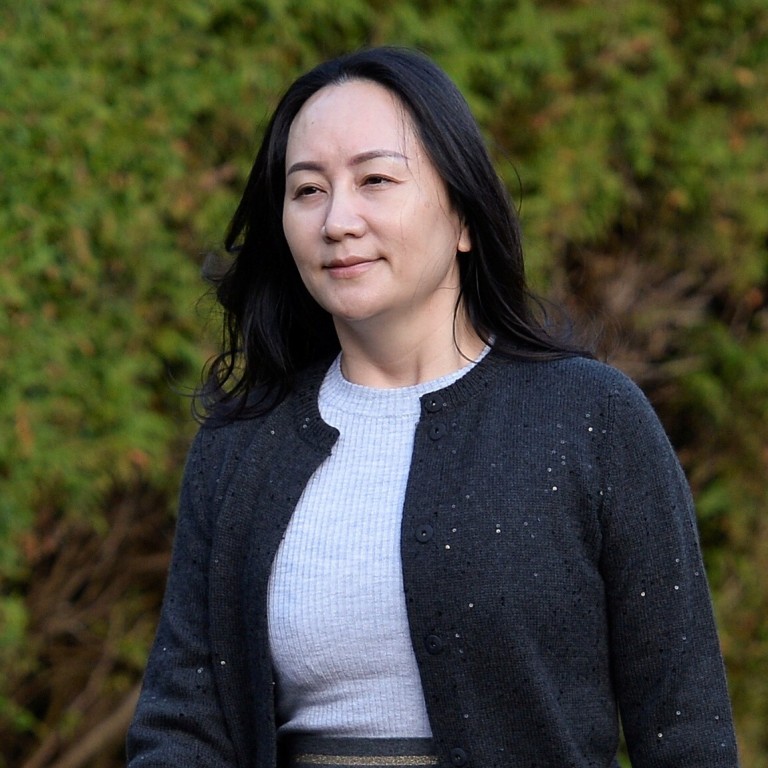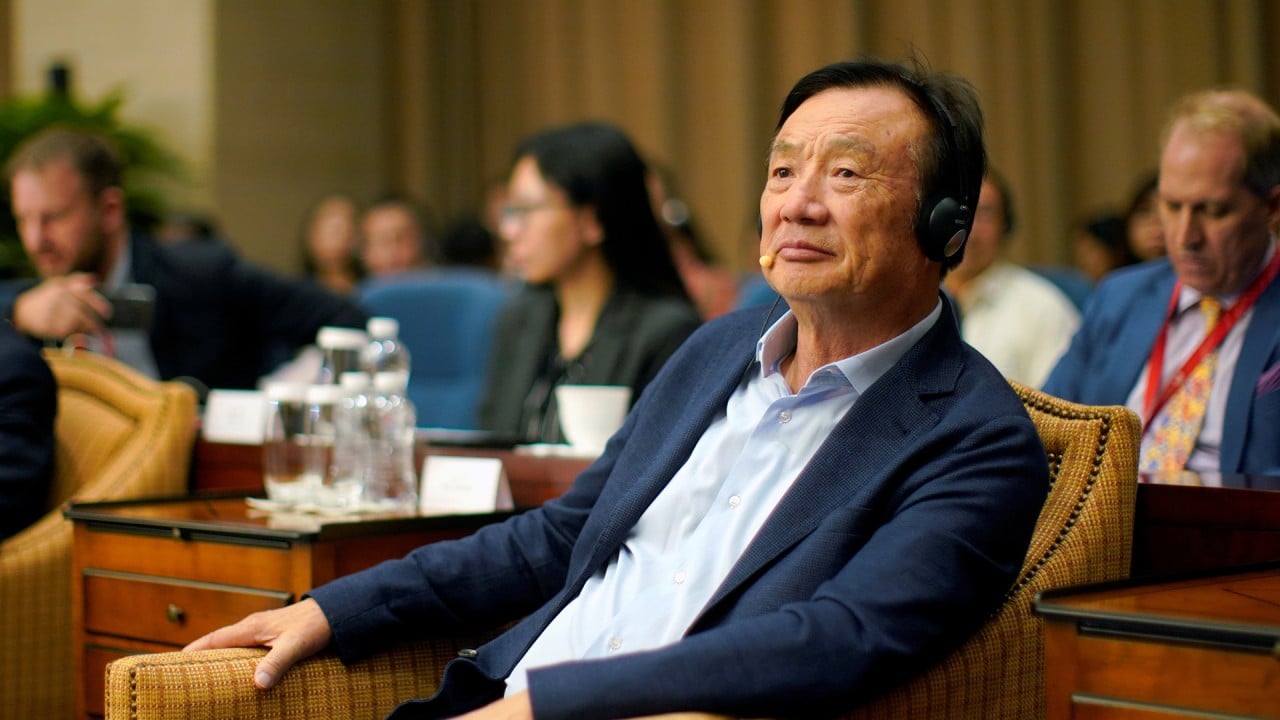
Canadian police officer says he feared Huawei’s Meng Wanzhou would ‘put up a fight’ during arrest
- Constable Winston Yep said Meng’s arrest was delayed until after she got off her plane at Vancouver’s airport because he did not know ‘what she was capable of’
- But Meng’s lawyer says the delay was orchestrated to let border officers question Meng first, in violation of her rights, and he ridiculed Yep’s claims
The Canadian police officer who arrested Huawei executive Meng Wanzhou at Vancouver’s airport almost two years ago testified on Monday about the operation, saying safety concerns about “what she was capable of” helped sway the decision not to arrest Meng on the plane.
But Meng’s lawyer Richard Peck ridiculed the assertion by Constable Winston Yep of the Royal Canadian Mounted Police (RCMP), asking the officer in cross-examination if it was something that “just popped into your head” on the witness box, in the Supreme Court of British Columbia in Vancouver.
The issue is important to Meng’s case as she tries to defeat extradition to the US on fraud charges, because her lawyers say police deliberately delayed arresting her until after she got off the plane and had been questioned for three hours by border officers.
This was to gather evidence for the US fraud case against her and violated her Canadian Charter rights, say her lawyers, who want the extradition case thrown out as a result.

Yep, the first witness in the long-running case, testified that he had no idea who Meng was until being given a warrant the day before her December 1, 2018, arrest, and that he only became involved in the case because his unit was short staffed at the time.
The arrest of Meng would infuriate Beijing and send China’s relations with the US and Canada into a downward spiral.
Meng, 48, is Huawei Technologies’ chief financial officer and the daughter of company founder Ren Zhengfei.
We didn’t know who [Meng] was actually travelling with and what she was capable of
Meng’s lawyers say that her detention and questioning by border officers, and their seizure of her electronic devices and passwords before her arrest by Yep, were part of a “coordinated and covert criminal investigation” by the US and Canada, and not a normal process.
Her treatment breached the terms of the arrest warrant, which said she should be arrested “immediately”, and was designed to gather evidence at the instruction of US authorities, her lawyers say.
In initial questioning by crown counsel John Gibb-Carsley, who is representing US interests, Yep said he first became involved in the case on the afternoon of November 30, 2018, when he received a text message from an RCMP colleague that the Canadian Department of Justice (DOJ) had received an urgent extradition request.
“We were short staffed and she couldn’t find anyone to go down to the DOJ office,” said Yep. At the time, he and his partner were delivering a suspect from prison to the office on an unrelated matter, so he volunteered to deal with the new warrant.
It was at the DOJ office at 2.15pm that he learned that Meng was the subject of the extradition request.
“I didn’t know who Ms Meng was,” Yep said. But he thought it would become a high-profile matter because Meng was the CFO of Huawei, which he knew was “one of the largest communications companies in the world”.
Yep said the US had requested that Meng’s electronic devices be seized and put in Faraday bags, which prevent the wireless transmission of information. Asked what he thought of that, Yep said it did not give him any concern at the time.

Gibb-Carsley had Yep read out the portion of the arrest warrant that directed that Meng be arrested “immediately”.
Yep said he took “immediately” to mean “as soon as practical”.
“We have to take into account public safety, police safety. As soon as it is safe to do so … you don’t rush in,” said Yep. He said he treated the Meng warrant no differently than any others he had executed.
Yep described a 30-minute meeting with Canada Border Services Agency (CBSA) officers on the morning of December 1 about how the arrest would be conducted.
An email from Yep’s supervisor had suggested that Meng be arrested on the plane. But in the meeting CBSA officers said they regarded the plane as their jurisdiction. In any case, “I didn’t think it was a good idea because of public safety,” testified Yep.
“We didn’t know who she was actually travelling with and what she was capable of,” said Yep, and the presence of other passengers made it “a risky situation”.
After Meng’s Cathay Pacific flight from Hong Kong landed around 11am, she was identified by CBSA officers who led her away to be questioned. Yep said he did not ask the CBSA to conduct an examination of Meng, nor obtain any information from her.
“We left it up to them to do their process … we let them do their job,” he said.
Canada gets ‘virtual’ access to Spavor and Kovrig held in China
After the CBSA examination, Yep and a colleague acting as a translator entered a room where Meng was sitting alone and arrested her at 2.15pm.
He said Meng was “surprised at first” but cooperative. He then read Meng her charter rights, including her right to a lawyer, and said she could also contact the Chinese consulate.
Meng tried to call a Huawei lawyer in China, then was handcuffed; typically suspects were cuffed with their hands behind them, but because she was being cooperative, Yep said, he cuffed Meng’s hands in front of her.
She was then transported to the Richmond RCMP detachment for processing.
Yep said that he tried to assist Meng by calling the Chinese embassy in Ottawa. But the man who answered the phone there told him the office was closed, and to call back at 9am on Monday.
You didn’t think for one moment that a 46-year-old international executive was going to be coming at you with a knife on a plane did you?
Yep said he shared no information obtained from Meng with US authorities. Nor, to his knowledge, did any RCMP colleagues.
In cross examination, lawyer Peck repeatedly asked Yep if seriously believed arresting Meng on the plane might have been unsafe. “If something happened, if she puts up a fight, we may have to use physical force,” responded Yep. “We don’t know who she’s travelling with … so we may end up fighting other people.”
The constable said that although FBI officers in Hong Kong had said Meng was travelling with a female companion, he was concerned she might also have had bodyguards on the plane.
Yep agreed with Peck that his safety concerns had not been recorded in any of his notes.

05:11
Huawei founder shares his relationship with family and his personality
“Was that something that... just popped into your head today?” asked Peck.
Yep said it came from his RCMP training, and something he called the “one-plus-one rule”: “You can never assume; there could be another person. It’s just like somebody with a knife. You can’t assume a person has only one knife. They might have two. Maybe three. You have to always be on guard.”
“You didn’t think for one moment that a 46-year-old international executive was going to be coming at you with a knife on a plane did you?” said Peck.
Yep said he did not know Meng, or what she was capable of.
“Really?” asked Peck, after describing various airport security checks which he called “common knowledge”. “You didn’t have any concern that Ms Meng had a knife to attack you with,” he told the officer, in a terse exchange.
Associate Chief Justice Heather Holmes adjourned the hearing until Tuesday morning, when Peck will resume his cross examination of Yep.
Meng Wanzhou loses bid to see Canada-US emails about her arrest
The border officers who questioned Meng and seized her devices before handing her off to Yep are expected to be called as witnesses later this week.
Meng’s arrest upended China’s relations with the US and Canada. Beijing subsequently arrested two Canadians, Michael Spavor and Michael Kovrig, and accused them of spying, but in Canada their situation is widely seen as hostage-taking.
In a statement issued ahead of the proceedings, Canada’s Justice Department said: “Ms Meng has been and will continue to be afforded a fair process before the British Columbia Supreme Court in accordance with Canadian law.”
Huawei said in a statement on Monday that Meng’s lawyers would “probe the extent to which the Trump administration directed RCMP and CBSA officers to engage in a deceptive and improper search, thereby violating a court order and Ms Meng’s Charter rights”.
Meng is accused of defrauding HSBC bank by lying about Huawei’s business dealings in Iran, putting the bank at risk of violating US sanctions.
She is under partial house arrest in Vancouver, living in one of her two homes in the city. Her extradition proceedings are scheduled to last well into next year, but appeals could drag out the process for much longer.

